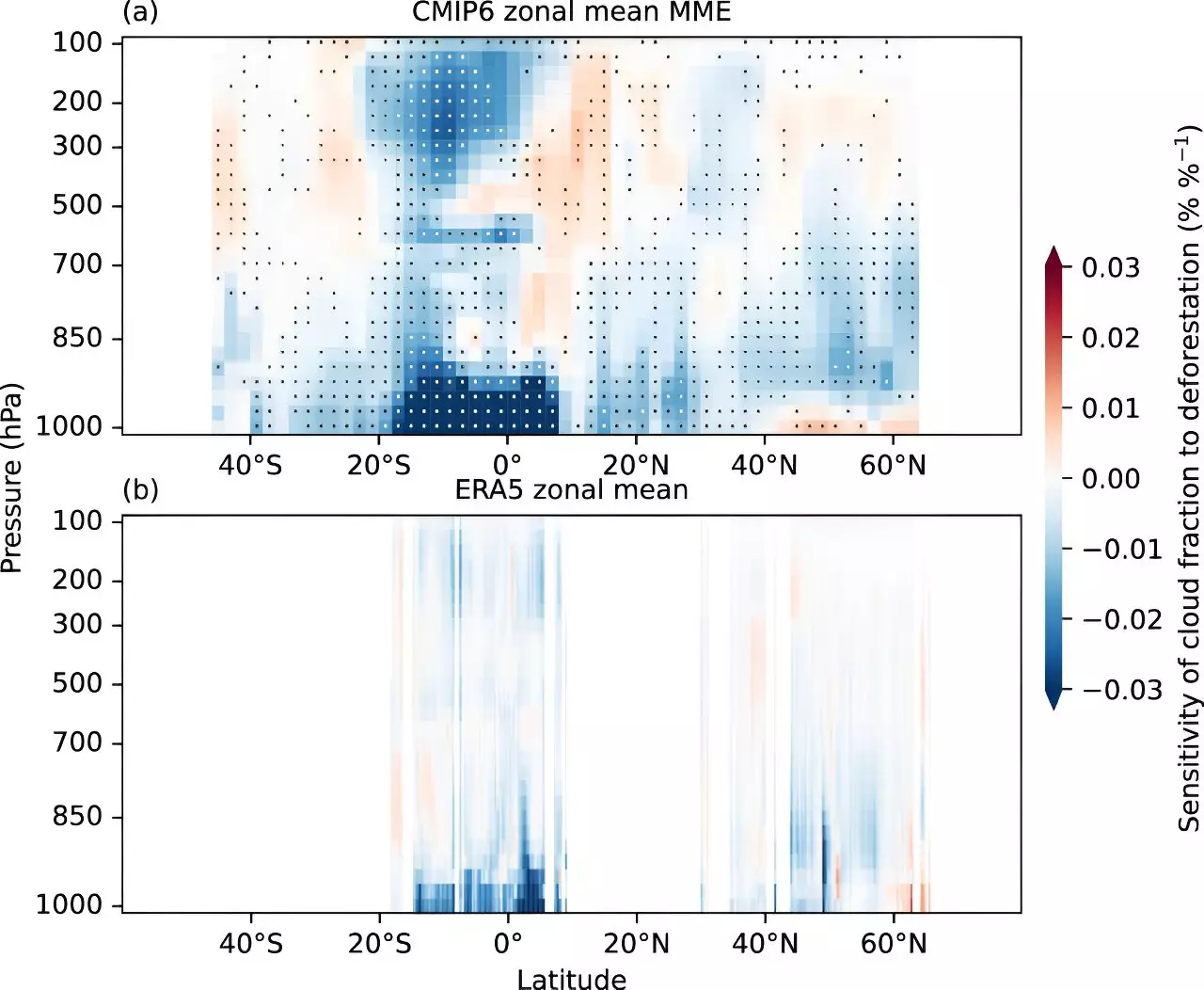Recent research has shed light on the profound effects of large-scale deforestation on the global climate, revealing insights that go beyond conventional understanding. Collaborative efforts between scientists from iDiv, Leipzig University, and Sun Yat-sen University have underlined that deforestation not only contributes to atmospheric carbon dioxide levels but also significantly alters cloud cover, thus intensifying warming effects in regions once covered by forests. This juxtaposition of ecological changes underscores the urgent need for a holistic assessment of deforestation’s climate implications.
The correlation between deforestation and reduced cloud cover has emerged as a focal point of the study. Researchers found that the absence of forests leads to a marked decrease in both low-level and tropical high-level clouds. These clouds play a critical role in climate regulation; they reflect solar radiation, thus exerting a cooling influence on the Earth’s surface. Dr. Hao Luo, a prominent figure in the study, emphasizes how the diminishing presence of these clouds can significantly amplify warming effects, contradicting the previous notion that deforestation might balance out due to forest darkness absorbing sunlight.
A closer examination of the study reveals the mechanisms driving these changes. The research team utilized advanced climate models and reanalyses to simulate deforestation scenarios, uncovering how altered heat fluxes at the surface could impede moisture uplift. This disruption reduces cloud formation, further contributing to warming. Professor Johannes Quaas elaborates on how low-level clouds, by reflecting sunlight, help maintain cooler temperatures. Hence, their decline can exacerbate the warming induced by carbon emissions from deforestation.
Knowledge Gaps and Future Directions
Despite the significant findings, researchers acknowledge a crucial gap in understanding the broader implications of deforestation-related changes in cloud dynamics. The interplay between forest biodiversity and weather patterns remains insufficiently explored, prompting calls for interdisciplinary research. Investigations into how various ecosystems impact local and global climates are necessary to fully grasp the cascading effects of deforestation.
Implications for Climate Policy
These findings hold critical implications for climate policy and conservation efforts. The revelation that reduced cloud cover nearly halves the cooling effect previously associated with forests accentuates the necessity for comprehensive climate strategies that address deforestation. As global leaders grapple with climate change, recognizing the multifaceted consequences of forest loss is essential for formulating effective policies that mitigate climate impacts.
This groundbreaking study opens avenues for a deeper understanding of how deforestation influences climate through multifarious pathways, particularly in terms of cloud dynamics. As the evidence mounts, the integration of ecological preservation into climate action plans is not merely advisable; it is essential. Preserving our forests may very well be the linchpin in the fight against climate change, affecting both local ecosystems and the global climate system. The urgency of such steps cannot be overstated, as the stakes for our planet’s future grow ever higher.

